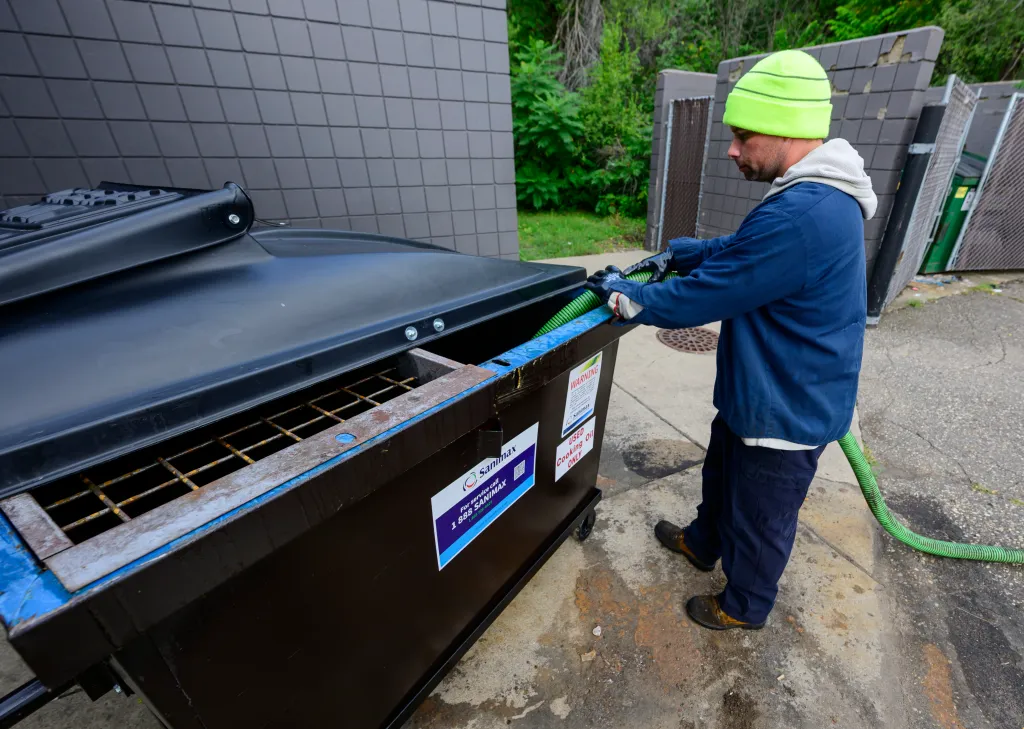
To place an obituary, please include the information from the obituary checklist below in an email to obits@pioneerpress.com. There is no option to place them through our website. Feel free to contact our obituary desk at 651-228-5263 with any questions.
General Information:
Your full name,
Address (City, State, Zip Code),
Phone number,
And an alternate phone number (if any)
Obituary Specification:
Name of Deceased,
Obituary Text,
A photo in a JPEG or PDF file is preferable, TIF and other files are accepted, we will contact you if there are any issues with the photo.
Ad Run dates
There is a discount for running more than one day, but this must be scheduled on the first run date to apply.
If a photo is used, it must be used for both days for the discount to apply, contact us for more information.
Policies:
Verification of Death:
In order to publish obituaries a name and phone number of funeral home/cremation society is required. We must contact the funeral home/cremation society handling the arrangements during their business hours to verify the death. If the body of the deceased has been donated to the University of Minnesota Anatomy Bequest Program, or a similar program, their phone number is required for verification.
Please allow enough time to contact them especially during their limited weekend hours.
A death certificate is also acceptable for this purpose but only one of these two options are necessary.
Guestbook and Outside Websites:
We are not allowed to reference other media sources with a guestbook or an obituary placed elsewhere when placing an obituary in print and online. We may place a website for a funeral home or a family email for contact instead; contact us with any questions regarding this matter.
Obituary Process:
Once your submission is completed, we will fax or email a proof for review prior to publication in the newspaper. This proof includes price and days the notice is scheduled to appear.
Please review the proof carefully. We must be notified of errors or changes before the notice appears in the Pioneer Press based on each day’s deadlines.
After publication, we will not be responsible for errors that may occur after final proofing.
Online:
Changes to an online obituary can be handled through the obituary desk. Call us with further questions.
Payment Procedure:
Pre-payment is required for all obituary notices prior to publication by the deadline specified below in our deadline schedule. Please call 651-228-5263 with your payment information after you have received the proof and approved its contents.
Credit Card: Payment accepted by phone only due to PCI (Payment Card Industry) regulations
EFT: Check by phone. Please provide your routing number and account number.
Cash: Accepted at our FRONT COUNTER Monday – Friday from 8:00AM – 3:30PM
Rates:
The minimum charge is $162 for the first 10 lines.
Every line after the first 10 is $12.20.
If the ad is under 10 lines it will be charged the minimum rate of $162.
On a second run date, the lines are $8.20 per line, starting w/ the first line.
For example: if first run date was 20 lines the cost would be $164.
Each photo published is $125 per day.
For example: 2 photos in the paper on 2 days would be 4 photo charges at $500.
Deadlines:
Please follow deadline times to ensure your obituary is published on the day requested.
Hours
Deadline (no exceptions)
Ad
Photos
MEMORIAM (NON-OBITUARY) REQUEST
Unlike an obituary, Memoriam submissions are remembrances of a loved one who has passed. The rates for a memoriam differ from obituaries.
Please call or email us for more memoriam information
Please call 651-228-5280 for more information.
HOURS: Monday – Friday 8:00AM – 5:00PM (CLOSED WEEKENDS and HOLIDAYS)
Please submit your memoriam ad to memoriams@pioneerpress.com or call 651-228-5280.
Video surveillance caught the liquid larceny: A man pulled a box truck behind a Maplewood strip mall in the wee hours in late October, got out, grabbed a hose and jammed it into a bin of used cooking oil outside Great Moon Buffet.
He siphoned nearly $800 worth of grease from the restaurant, pumping it into a storage container in the back of the truck and slipping away into the darkness, according to felony charges against the alleged culprit, who’s also accused of hitting up two other restaurants.
“I had never heard of anything like this before,” said Derek Fritze, a 10-year Maplewood police detective who investigated the case. “Apparently, it’s a big thing.”
But it’s not new, just more widespread as used cooking oil has become liquid gold over the past decade because it’s recycled for the production of biofuel, said Kent Swisher, president and CEO of the North American Renderers Association. He said thieves are stealing up to $80 million worth of the grease every year, up from $42 million in 2013.
“So, yeah, it’s across the country,” he said of the thievery. “And as prices have gotten stronger over time, you’d think the renderers would be happy. But it actually created more problems, because it created more people trying to steal it.”
Renderers and smaller businesses collect the oil from restaurants, who are compensated depending on the volume. It’s then processed and sold to refineries. Besides biofuel, it’s used as a nutritional additive in animal feed.
The global used cooking oil market is expanding rapidly. It was valued at $7 billion in 2023 and is expected to top $14 billion by 2033, according to market analysts.
Meanwhile, U.S. restaurants have been getting 10 to 50 cents per gallon this year for the grease, says Florida-based recycler Grease Connections.
Slippery bandit
A manager at Great Moon Buffet noticed the restaurant had only been getting about $15 a month — instead of the usual $600 to $700 — because the amount of used cooking oil in the barrel out back was low when picked up by Sanimax, a rendering company with a plant in South St. Paul.
So he put up surveillance cameras, which caught the illicit act going down just before 4 a.m. Oct. 23. Cameras got an image of the man’s face, and the back license plate of his white box truck. The manager reported the theft to police on Oct. 28.
Less than two weeks later, around 4:20 a.m. Nov. 7, police saw the truck parked outside a restaurant on Beam Avenue, the criminal complaint says. The driver denied stealing used oil from any restaurant. He said the truck belonged to his friends, and that he stopped in the parking lot because his truck was not working.
Police say they later matched the driver’s face to the man in the Great Moon Buffet surveillance video.
Sanimax gave police a list of other restaurants where surveillance cameras allegedly caught the same man stealing grease: New Hong Kong Wok in New Brighton about 6:30 a.m. on Aug. 10, 2024, and Peking Garden Restaurant in St. Paul around 4 a.m. eight days later.
Sanimax put the value of the oil stolen from the three restaurants at just over $3,600.
The Ramsey County Attorney’s Office charged the Minneapolis man with three counts of theft, two at the felony level. His attorney did not respond to the Pioneer Press’ requests for comment on the allegations.
Prevention tactics
On a recent weekday morning, a Sanimax driver pulled up to Concord Lanes and sucked out used cooking oil from a large bin on the side of the bowling alley. It’ll end up just down the road at the company’s South St. Paul plant, a remnant of the city’s stockyards and meatpacking days.
Mike Karman, Sanimax vice president of procurement, said used cooking oil theft has been a problem for at least a decade — mostly in larger metropolitan areas — and it’s been more prevalent in the Twin Cities over the past two summers compared to neighboring states.
“We see multiple different trucks, so we know it’s more than one actor,” he said of the local spate of thefts. “So I can say that there’s more than one truck running around doing it.”
To try to prevent the thievery, Sanimax puts its bins inside restaurants when there’s room or puts locks on them. “But the problem is,” Karman said, “most of these thieves, even if there is a lock on where you dump in the oil, they’ll just lift and bend up a corner of the lid and stick in a pipe to suck it out.”
Expensive anti-theft lids are also an option, although thieves are known to drill through the bin to get at the oil, he said.
Samimax also does its own surveillance, he said, without getting into the details.
Sanimax told police that man who took the Great Moon Buffet grease could be employed or contracted by rival recycling business Greasehauler. Sanimax did its own investigation and found the man’s truck parked at Greasehauler’s plant in Plato, Minn., several times.
Karman said he couldn’t get into all that, but added: “We take our business seriously, so when we see that there is theft, we utilize all of our resources.”
Greasehauler owner Lev Mirman, when contacted by the Pioneer Press, said he had never heard of the man charged in the Great Moon Buffet theft. He said he gets used cooking oil from several sources and that it’s possible someone gave him a fake name.
Karman said Sanimax does not buy grease from non-vetted suppliers, but there is no regulation stopping other processors from doing so.
Syndicates charged federally
Swisher, from the Virginia-based renderers association, said they started a task force in 2013 to try to get law enforcement to put more focus on the thefts “because at the time, everybody kind of giggled about stolen used cooking oil.”
That’s no longer the case, he said.
“It’s become such a big thing over the years that it’s even gotten the FBI’s attention. And some of the syndicates are quite large,” he said. “When you Google it, it’s kind of amazing how many stories pop up these days.”
The alleged capers range from a lone man with a single truck to an organized ring running a whole fleet.
A federal grand jury in North Carolina indicted 21 co-conspirators — including 12 from Mexico and one from Turkey — on several charges in 2019 for allegedly stealing nearly $4 million worth of used cooking oil over five years. The ring operated across North Carolina, Tennessee and Virginia, storing the stolen grease in a warehouse, the indictment says.
In December, a federal grand jury in western New York announced the indictment of six New York men for allegedly stealing at least 90,000 pounds of used grease from restaurants in and around Rochester. They sold the oil to a broker, who sold it to a refinery in Erie, Pennsylvania, the indictment says.
Swisher said his association disbanded their task force after renderers started taking theft precautions. Many now have cameras, hire private investigators and offer cash rewards to try to catch the thieves. He knows of at least one renderer that puts electronic anti-theft devices on its bins that sense when the oil is being stolen and alerts police or private investigators.
An apology, cash offer
Peking Garden co-owner Teresa Nguyen said she didn’t know someone stole their grease last year. But that wasn’t the case five years ago at their former University Avenue location, when she caught a guy siphoning oil from a bin they shared with a neighboring restaurant, Golden Gate Cafe.
She thought at first he was a Sanimax driver collecting the grease. But then he “looked afraid” and apologized, she said, and offered her $100 cash on the spot to not call the police.
She refused, told him it wasn’t just her oil. She asked him to go to Golden Gate and explain what he had done because both restaurants had been noticing the Sanimax compensation checks were smaller than usual.
The man left in his box truck, but didn’t go to Golden Gate. The theft went unreported to police.
“Honestly, we have a lot of customers in the cities that we know get stolen from, but we can’t quite quantify it because a lot of times they don’t take all of it,” said Karman, of Sanimax. “But then the customer goes, ‘Oh, my checks are half the size they used to be. I wonder why.’ And then they just go on to doing something else and don’t report it.”



